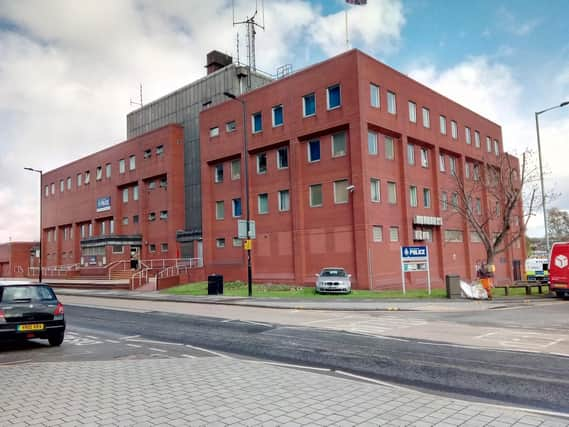Police's problem solving approach helps to cut calls for help


'˜Problem solving policing' was seen as a potential answer to reducing cutting demand on the force at locations where statistics show problems can be anticipated, by getting to the root of problems instead of repeatedly turning up to deal with offenders after each call for help.
A squad of hand-picked recruits with impressive university educations were among the first to go through the training process and it has been so successful it is now being used for all new recruits, with existing officers also being trained.
Advertisement
Hide AdAdvertisement
Hide AdComputerised incident recording allows the force to monitor its worst problem spots and in the first three months of this year calls to 31 from the top 40 were down, following a concerted effort to tackle the issues which caused high demand.
The county's hospitals are proving a tough challenge for the system, however, with three of the four main hospitals '“ the Northern General in Sheffield, Doncaster Royal Infirmary and Barnsley Hospital '“ all among those where demand on policing had increased, despite efforts to reduce it.
Only at Rotherham Hospital did demand fall, with the town performing best overall, with reduced demand at nine of its top ten locations.
There were increased incidents at Clifton Park, but all the other areas where police would expect a high demand for help, including shops and fast food restaurants, showed reduced demand.
Advertisement
Hide AdAdvertisement
Hide AdBarnsley registered reductions in eight out of ten areas, with problems increasing at the town centre transport interchange '“ which has been a trouble spot for anti-social behaviour over an extended period '“ as well as the hospital. Increased numbers of private security guards have been introduced by hospital management in the last few months.
Sheffield and Doncaster both saw problems increase at three out of ten locations, with a second hospital and a children's home causing increased demand in Sheffield, while in Doncaster police faced increasing calls to Doncaster Robin Hood Airport and the prisons.
The figures were presented to South Yorkshire Police and Crime Commissioner Dr Alan Billings at a Public Accountability Board meeting, the forum where he holds Chief Constable Stephen Watson to account over the force's performance.
Deputy Chief Constable Mark Roberts told the meeting: 'I am very confident about the force's approach to this method of policing. You cannot do this without a neighbourhood team.
Advertisement
Hide AdAdvertisement
Hide Ad'The fact we have these teams allows us to get into the bedrock of neighbourhoods.'
In addition to training neighbourhood officers, those from other agencies who work in partnership with officers at a local level have also been offered the same sessions, 'So we are all talking the same language', said Mr Roberts.